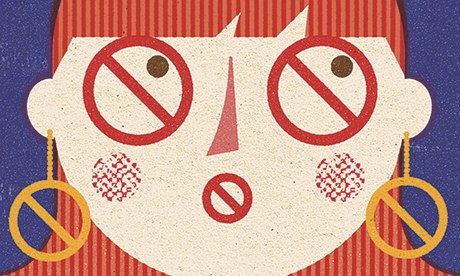
Few topics have been more mangled and misunderstood in the world of popular psychology than that of "self-talk", the chuntering monologue most of us conduct through the day in our heads, or out loud when we're alone. (Don't pretend you don't.) Contrary to self-help lore, there's little evidence that positive self-talk works like magic. Telling yourself you're beautiful, a confident public speaker or a future billionaire won't make you any of those things; if anything, it's liable to have the reverse effect. The true impact of self-talk is more subtle. For example, it's been shown that if you want to accomplish a challenging task, you're better off phrasing it as a question ("Will I talk to my boss about that promotion?") than simply declaring it ("I will talk to my boss about that promotion!"). The declaration sounds better, but it's the question that generates more "intrinsic motivation", calling to mind your deeply held reasons for wanting to act. And a similarly tiny linguistic tweak, it emerged recently, could make the difference between resisting temptation and succumbing to it.
Researchers at two US business schools wanted to examine the effects of self-talk employing the phrase "I can't" versus the phrase "I don't", in the context of personal health goals. Suppose it's time for your weekly kick-boxing class, but the sofa looks inviting, so you try to talk yourself into action. Does it really matter if you say, "I can't miss my weekly class", or, "I don't miss my weekly class"? You wouldn't have thought so, but according to the experiments, published in the Journal of Consumer Research, it does. In one, students seeking to eat more healthily were instructed to use either "I can't" or "I don't" each time they confronted a temptation. Upon leaving, they were offered a token of appreciation for taking part: a chocolate bar or a granola bar. Of those instructed to resist temptation using "I can't", 39% went for the healthier choice; of those using "I don't", the figure was 64%.
Try repeating each of those to yourself, perhaps with a more personally relevant example – in my case, "I can't/don't check Twitter when I'm meant to be working." Monitor your immediate emotional reactions and you'll probably see what's going on. The "can't" framing implies an external restraint, which feels disempowering (even if you imposed the restraint on yourself). You might even be tempted to disobey solely to assert your independence. To say that you "don't" do something, by contrast, suggests autonomy, as well as long-term commitment. Who wouldn't rather be the self-directed, principled type who doesn't have more than one beer, or check email after 9pm, et cetera, than the rule-oppressed drudge who can't?
That's worth remembering when you're talking to others, too. It's often easiest to refuse some onerous request by claiming that you "can't"; sometimes, it might even be true. The trouble is that when you tell your overly demanding colleague/friend/spouse that you "can't", there's someone else listening: you. According to cliche, learning to say "no" is the key to seizing control of life. But how you say no matters, too: the subliminal result of all those "I can'ts" could just be to leave you feeling more powerless and put‑upon. The phrase you're looking for is "I don't". Don't doubt it.
oliver.burkeman@theguardian.com
Follow Oliver on Twitter

